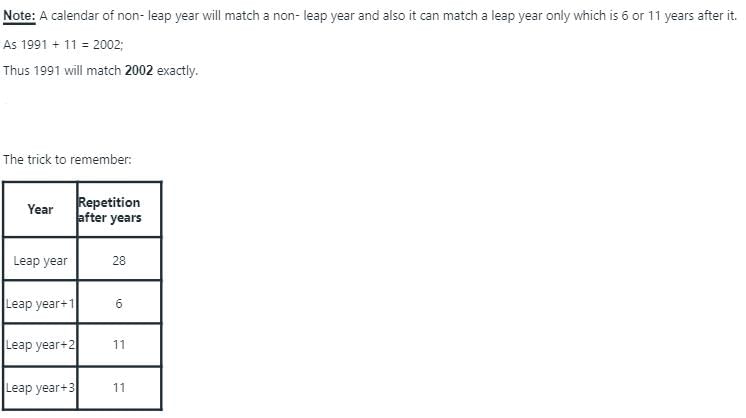Railways Exam > Railways Tests > Test: Calendars- 1 - Railways MCQ
Test: Calendars- 1 - Railways MCQ
Test Description
10 Questions MCQ Test - Test: Calendars- 1
Test: Calendars- 1 for Railways 2025 is part of Railways preparation. The Test: Calendars- 1 questions and answers have been prepared
according to the Railways exam syllabus.The Test: Calendars- 1 MCQs are made for Railways 2025 Exam.
Find important definitions, questions, notes, meanings, examples, exercises, MCQs and online tests for Test: Calendars- 1 below.
Solutions of Test: Calendars- 1 questions in English are available as part of our course for Railways & Test: Calendars- 1 solutions in
Hindi for Railways course.
Download more important topics, notes, lectures and mock test series for Railways Exam by signing up for free. Attempt Test: Calendars- 1 | 10 questions in 10 minutes | Mock test for Railways preparation | Free important questions MCQ to study for Railways Exam | Download free PDF with solutions
Test: Calendars- 1 - Question 1
If 15 March 1816 was Friday, what day of the week would 15th April 1916 be?
Detailed Solution for Test: Calendars- 1 - Question 1
Test: Calendars- 1 - Question 2
A year 1991 is having a same calendar as that of the year X. Which of the following is a possible valueof X.
Detailed Solution for Test: Calendars- 1 - Question 2
Test: Calendars- 1 - Question 3
If 28th August 1946 was a Wednesday, what day of the week was 31 August 1961?
Detailed Solution for Test: Calendars- 1 - Question 3
Test: Calendars- 1 - Question 4
If 09/12/2001(DD/MM/YYYY) happens to be Sunday, then 09/12/1971 would have been a
Detailed Solution for Test: Calendars- 1 - Question 4
Test: Calendars- 1 - Question 5
In 2016, Mohan celebrated his birthday on Friday. Which will be the first year after 2016 when Mohan will celebrate his birthday on a Wednesday? (He was not born in January or February)
Detailed Solution for Test: Calendars- 1 - Question 5
Test: Calendars- 1 - Question 6
If 10th May, 1997 was a Monday, what was the day on Oct 10, 2001?
Detailed Solution for Test: Calendars- 1 - Question 6
Detailed Solution for Test: Calendars- 1 - Question 7
Detailed Solution for Test: Calendars- 1 - Question 8
Detailed Solution for Test: Calendars- 1 - Question 9
Detailed Solution for Test: Calendars- 1 - Question 10
Information about Test: Calendars- 1 Page
In this test you can find the Exam questions for Test: Calendars- 1 solved & explained in the simplest way possible.
Besides giving Questions and answers for Test: Calendars- 1, EduRev gives you an ample number of Online tests for practice
Download as PDF















